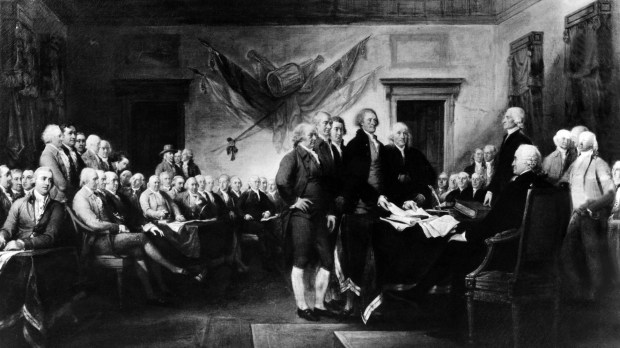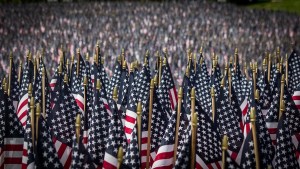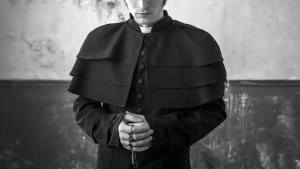Lenten Campaign 2025
This content is free of charge, as are all our articles.
Support us with a donation that is tax-deductible and enable us to continue to reach millions of readers.
Is America’s Independence Day worth celebrating?
It’s a good question. After all, Americans have been re-thinking many aspects of our history to try to be honest about who we are and how our nation’s story unfolded.
In 2020, many were asking, “Was July 4 good for civil rights?” and it was helpful to see how civil rights leaders answered.
In 2023, Catholics are increasingly asking, “Was July 4 good for the Catholic faith?” so it is helpful to see how Catholic leaders have answered.
That’s what my colleague Dr. Kevin Vance at Benedictine College in Atchison, Kansas, explored in recent informal remarks. He reveals that Catholic leaders of the highest order have had a lot to say about America from the very beginning.
First, a Doctor of the Church provided ideas that were fundamental to America’s founding principles.
Independence Day is the celebration of America throwing off the rule of a king. Where did we get the idea that we could do that? Vance shared the fascinating role of St. Robert Bellarmine, a Doctor of the Church, in developing the arguments against the principle of the divine right of kings.
The arguments formulated by this Italian Jesuit scholar ended up being referenced by Thomas Jefferson, James Madison, and others. He argued against the divine right of kings, saying there are many legitimate forms of government, but the form of government chosen should be established with the consent of the governed.
Catholic scholar Karl Maurer shared Father John Rager’s side-by-side comparison of St. Robert Bellarmine’s words and the words of the Declaration of Independence.
Bellarmine said: “Political power emanates from God.” The Declaration says: we “are endowed by their Creator with certain unalienable rights.”
Bellarmine said: “In the commonwealth, all men are born naturally free and equal.” The Declaration says: “All men are created equal.”
Bellarmine said: “For legitimate reason the people can change the government to an aristocracy or a democracy or visa versa.” The Declaration says: “Whenever any forms of government becomes destructive of these ends, it is the Right of the People to alter or abolish it, and to institute a new government.”
Catholic thought influenced America’s founding and Catholic thinkers supported it afterward.
Second, Vance said, an 1893 plenary council of American bishops distinguished the good and bad in America’s founding principles.
While Church leaders saw the dangers in some elements that influenced our founding, they also saw the power of our natural law tradition.
Said the Baltimore Council: “We consider the establishment of our country’s independence, the shaping of its liberties and laws as a work of special Providence, its framers ‘building wiser than they knew,’ the Almighty’s hand guiding them.”
The bishops even explicitly endorsed celebrating America’s founding, saying we “must keep firm and solid the liberties of our country by keeping fresh the noble memories of the past and thus sending forth from our Catholic homes into the arena of public life not partisans but patriots.”
Third, said Vance, popes have shared their great admiration for America’s founding principles.
When Pope John Paul II first visited the United States in 1979, within a year of becoming pope, he took the occasion to praise the Declaration of Independence, saying, “In the human and civil values that are contained in the spirit of this Declaration there are easily recognized strong connections with basic religious and Christian values.”
He called America’s Founding Principles “a noble challenge for all future generations of America.”
Pope Francis made the same point in 2015, saying, “The Declaration of Independence stated that all men and women are created equal, that they are endowed by their Creator with certain inalienable rights, and that governments exist to protect and defend those rights. Those ringing words continue to inspire us today, even as they have inspired peoples throughout the world to fight for the freedom to live in accordance with their dignity.”
So don’t be afraid to celebrate America’s birthday.
The signing of the Declaration of Independence was a great boon for Americans and for the whole world, and Catholics have thought so too — before, during, and after July 4, 1776. Now all that is left is to live up to its challenge.




